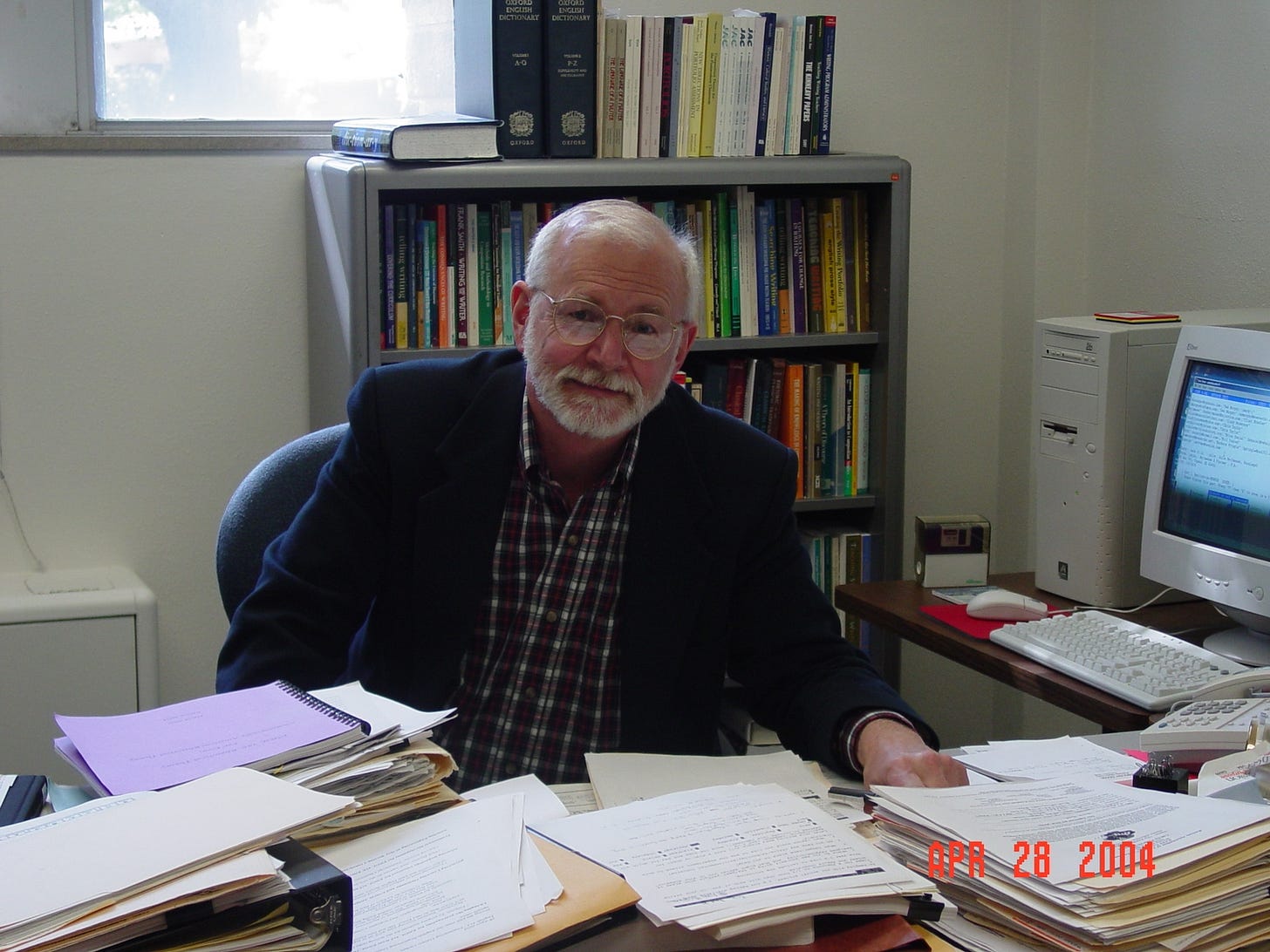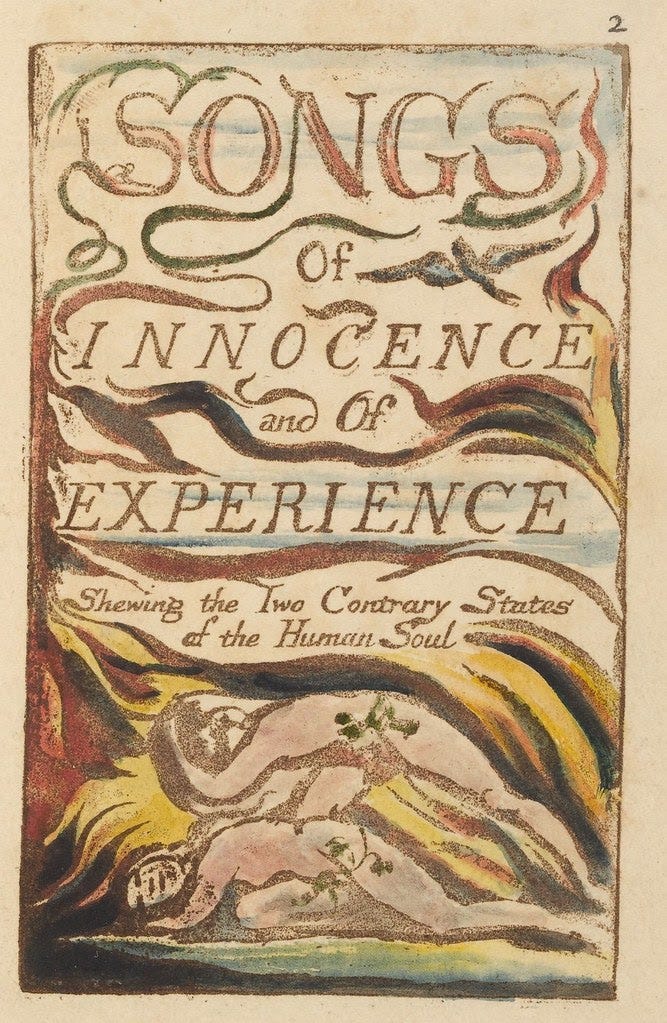I taught English Composition for 6 years, first as a Graduate Teaching Assistant (we didn’t do any “assisting”; we outright taught the freshman and sophomore classes that professors were too important to teach) and then as an Adjunct Professor at our local community college.
Fortunately, our Graduate Teaching Assistant advisor was an older gentleman who still had some sense of teaching one’s subject instead of simply indoctrinating students, and he gave us a good outline of materials to use, although we were mostly free to teach and to grade as we saw fit.
From those materials, I adapted and developed my own methods of teaching, particularly for Comp 2 (the persuasive writing course for sophomores). My aim, from the very start of each semester, was to make my students more alert and aware consumers of news and media—less easy to deceive with careful words.
The first assignment of the semester was to write two descriptions of the same place—one making it sound negative, the other making it sound positive. Both descriptions had to be factual, but students could use these strategies:
Selection and omission of details—leaving out details that do not serve the desired “narrative.”
Connotative word choice that conveys positive or negative feelings, such as “stink” vs. “scent”; “a sleek train” vs. “a filthy machine”; “seagulls circling playfully above me” vs. “psychotic seagulls swoop within inches of my head.”
Along the same lines, they had to use a metaphor or simile that gave a positive or negative impression, such as “wind ripples through their hair like waves on the ocean” vs. “my hair whips my face like the sting of a bee.”
The point was to teach them, by experience, the process by which “spin” is created.
As part of the readings I gave them to illustrate this concept, I used this pair of descriptions of Nyae Nyae !Kung women from the materials given by our advising professor:
Women bring most of the daily food that sustains the life of the people, but the roots and berries that are the principal plant foods of the Nyae Nyae !Kung are apt to be tasteless, harsh and not very satisfying. People crave meat. Furthermore, there is only drudgery in digging roots, picking berries, and trudging back to the encampment with heavy loads and babies sagging in the pouches of the karosses: there is no splendid excitement and triumph in returning with vegetables. –Lorna Marshal, The !Kung of Nyae Nyae
vs
A common sight in the late afternoon is clusters of children standing on the edge of camp, scanning the bush with shaded eyes to see if the returning women are visible. When the slow-moving file of women is finally discerned in the distance, the children leap and exclaim. As the women draw closer, the children speculate as to which figure is whose mother and what the women are carrying in the karosses. [. . .]
!Kung women impress one as a self-contained people with a high sense of self-esteem. There are exceptions—women who seem forlorn and weary—but for the most part, !Kung women are vivacious and self-confident. Small groups of women forage in the Kalahari at distances of eight to ten miles from home with no thought that they need the protection of men or of the men’s weapons should they encounter any of the several large predators that also inhabit the Kalahari. –P. Draper, “!Kung Women: Contrasts in Sexual Egalitarianism in Foraging and Sedentary Contexts”
Are these !Kung women sad or happy, brave or oppressed? Are their children eager for their mothers’ gathered food or dissatisfied with tasteless vegetables? The two authors present their own opinions in carefully worded ways that make their evaluations sound factual instead of shaped by their own prejudices.
In an attempt to add some literature to the course, I also presented pairs of poems from William Blake’s Songs of Innocence and Experience.
Both of the following poems are entitled “Holy Thursday”:
from Innocence
’Twas on a Holy Thursday, their innocent faces clean,
The children walking two & two, in red & blue & green,
Grey-headed beadles walk'd before, with wands as white as snow,
Till into the high dome of Paul's they like Thames' waters flow.O what a multitude they seem'd, these flowers of London town!
Seated in companies they sit with radiance all their own.
The hum of multitudes was there, but multitudes of lambs,
Thousands of little boys & girls raising their innocent hands.Now like a mighty wind they raise to heaven the voice of song,
Or like harmonious thunderings the seats of Heaven among.
Beneath them sit the aged men, wise guardians of the poor;
Then cherish pity, lest you drive an angel from your door.
from Experience
Is this a holy thing to see
In a rich and fruitful land,
Babes reduc'd to misery,
Fed with cold and usurous hand?Is that trembling cry a song?
Can it be song of joy?
And so many children poor?
It is a land of poverty!And their sun does never shine,
And their fields are bleak & bare,
And their ways are fill'd with thorns:
It is eternal winter there.
Are the orphan children being taken to St. Paul’s Cathedral on the holiday happy or miserable? Are their minders “wise guardians of the poor” or “cold and usurous”? Blake shows how easily a situation can appear to be whatever one chooses to present it as.
Now here’s an example of what one of my students produced for this assignment:
Positive
The bright sun shines into the large glass windows as I sit at my table in Hardees. Two old couples sit across from each other, enjoying the lovely afternoon, while sipping cups of rich coffee. Old people love Hardees. I can smell the aroma from the coffee that is being sipped by the elderly couples. Overhead, I can hear the soothing music that makes the restaurant a pleasant place. This place is amazing. Behind the counter, the smiling workers are creating my meal, which smells delicious. When I eat the finest tasting thickburger with fries, I start to smile. I walk out of Hardees feeling like I am on top of the world, because my stomach is full, and I know I have spent my money wisely.
Negative
I begin to get a migraine as the bright sun glares in my eyes through the large, hand-printed glass windows as I sit at my table in Hardees. Two older couples sit across from each other staring at the floor. This place is boring. Overhead, the same song is repeated again and again, which is making me frustrated. Behind the counter, the smell of the fries soaking in the dirty grease, as if they were sizzling in acid, makes my stomach curl. How horrible! When I eat the slimy, burnt burger, I force a smile just because a worker is watching me.
Aside from the factually disparate descriptions of the hamburger (it can’t be both “finest tasting” and “slimy, burnt”), this student manages to turn the same Hardees’ visit into a pleasant experience and an awful experience just by selecting details and using words strategically.
Most of my students were quite surprised to discover how easy it is to make something sound good or bad without actively lying, simply by choosing the desired details and the words used to describe it. One student wrote in the assignment’s reflection section:
This assignment has really opened my eyes to the power of words. Specifically, I have found that with connotation I can create any scenario I wish. With what I have learned, I can turn a day at an amusement park into a nightmare, and boot camp into an enjoyable experience. I have never truly considered the bias that goes into the writing of hundreds of newspaper and magazine articles everyday. Small details that people identify as truth are often exaggeration or out of context. In fact, it may not be possible to accurately understand a situation that you did not observe personally. Each person draws from individual experiences and knowledge to perceive sensory information. What I view as a relaxing jog may be considered agonizing exercise to others. Again, words are so powerful. Writers can accomplish anything they wish with the right verb or adjective. Writers can construct a picture of glory or anguish. Writers can produce any effect they desire.
If you’d like, try for yourself to identify the way that the connotation of words and the selection of details is used in a news article (or, more easily, an opinion piece) that you encounter.
As I told my students, nothing out there is “spin-free.” It’s all a matter of how much and in what direction.
Thoughts?






A brilliant and clear essay on how to spin a story! I don't really have anything to add to that as you've nailed it again. Your students were very lucky Celia to have you teach them how to recognize and utilize the mechanisms of media influence and we are also fortunate to be able to reap the rewards of your expertise!
This is great, Celia. After reading this , I immediately thought of the analogous process that goes on in our minds: where we ultimately decide whether to be happy or sad; whether to enjoy ourselves or be miserable from one moment, to one day, to long stretches of our lives, and through our entire lifetime.
When I was 20, I took the “Student Success Course” which was required at the West Point Preparatory School on (now closed) Fort Monmouth, NJ. The instructor, the late Dr. Matthew Ignoffo, had two simple hand puppets: a green smiling face and a red frowning face, which he respectively named the Inner Genius and the Inner Critic.
It was an extremely simple lesson that many people probably never had to learn, but it was the most valuable thing I learned in my life. For whatever reason, I had given my Inner Critic primacy and I usually saw the downside of things. Realizing I could see the positive spin on events and people allowed me to see the good in more people and circumstances, and to find the self-confidence to take risks like calling up and asking out this pretty, quiet young lady I’d barely known in high school six years prior (now my wife of 22+ years).
I am still quite cynical, but I work hard not to be about things that matter most: love and friendship. Dr. Ignoffo and his Inner Critic and Inner Genius hand puppets eventually made me give myself permission to be happy.
You shared a very valuable skill, enlightening your students to the power of words to influence feelings. Thank you for sharing it and triggering my memory of another great teacher.